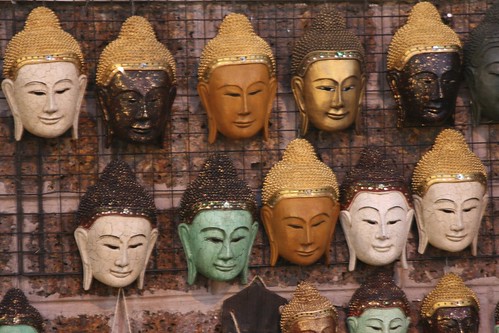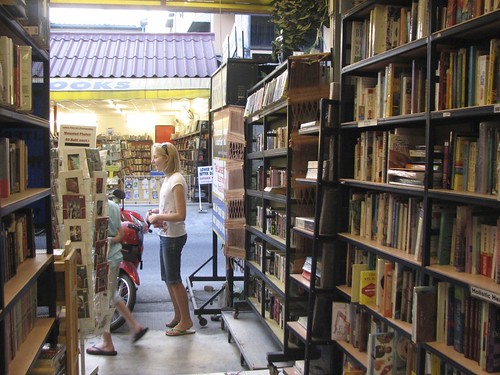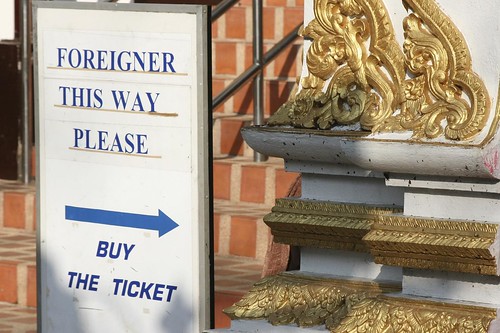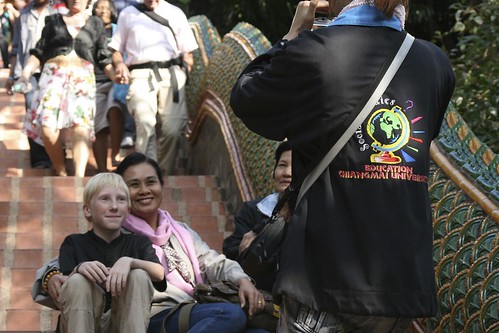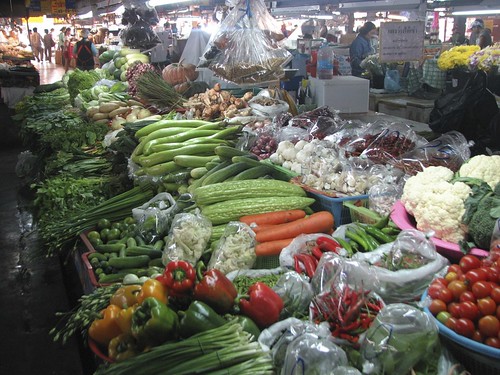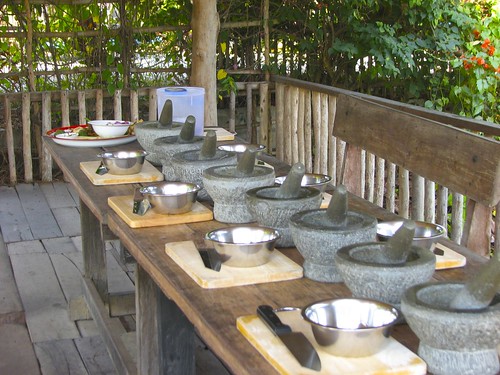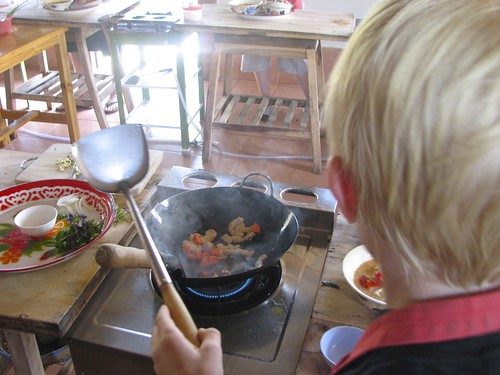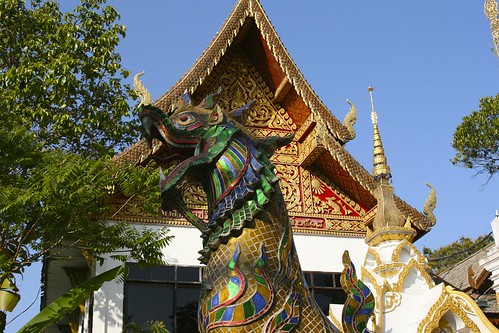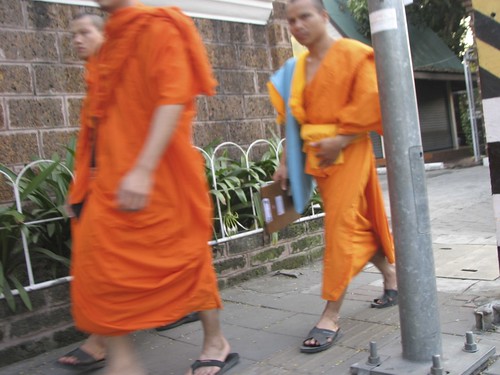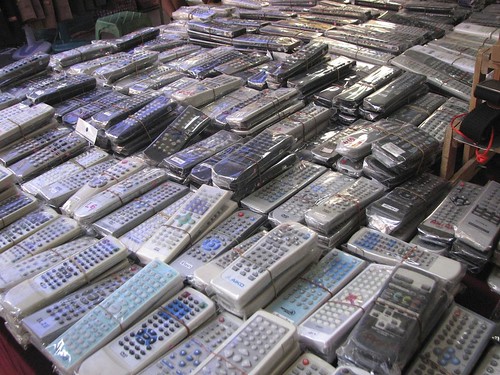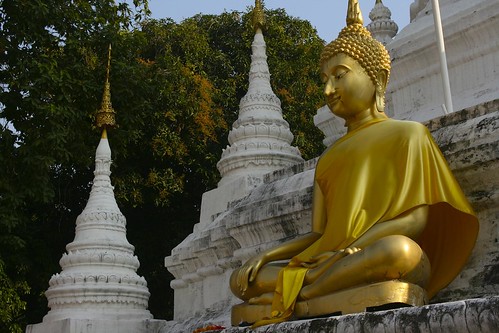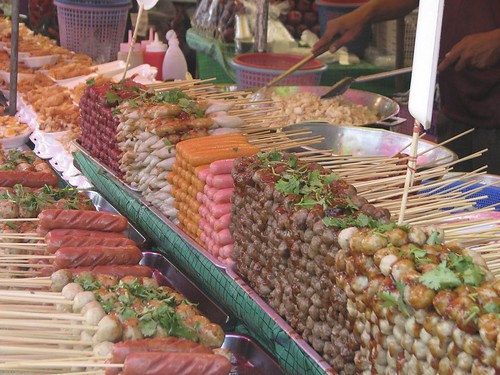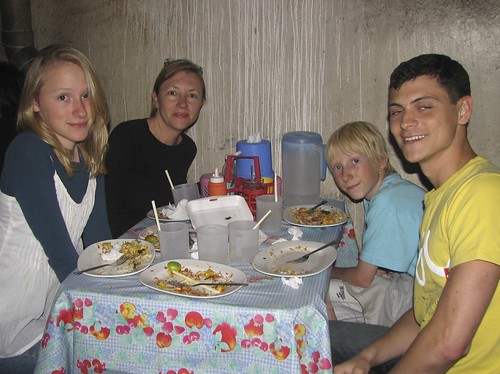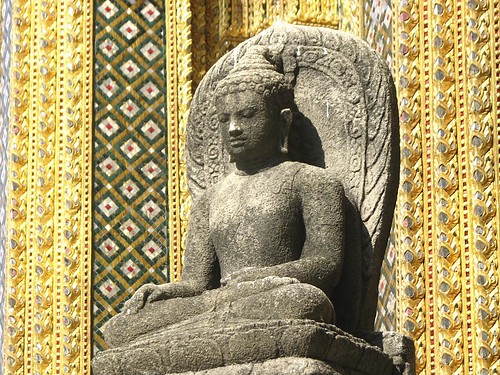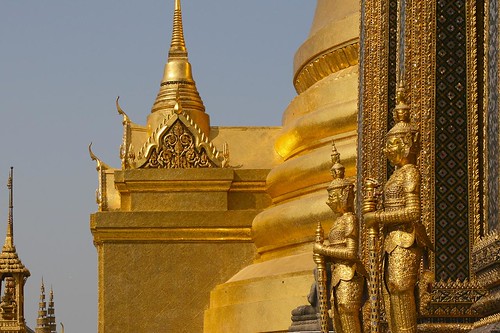Posts from — February 2009
Red Truck Lesson
Other than Obama’s inauguration, there hasn’t been a lot of good news so far in 2009.
We’ve had the misfortune of staying in hotels with CNN, and the superficial analysis and relentless doomsaying of cable TV pundits is enough to send the even the most optimistic among us scrambling for the Zoloft.
Obviously, the world faces a daunting economic crisis. Millions of Americans are out of work and facing very difficult times.
But the relentless, mindless coverage that passes for news these days does little to advance our understanding of the problem – or more importantly, the solution.
In Thailand, I’ve asked many people in the tourist industry how business is and every person I’ve spoken to has commented on how slow it is. The tourists, they say, are not coming this year.
Many blame the week long shutdown of Suvarnabhui Airport in November for scaring tourists away. But clearly, there is more to it than that.
Street vendors in Chiang Mai know nothing about bank failures and toxic assets in the United States, but their lives and livelihoods will be affected by them.
As demand plunges in the United States and Europe, the people who make our shoes, electronics and housewares will be thrown out of work in Thailand, Vietnam, China and many other countries. A United Nations agency is predicting that as many as 50 million people will lose their jobs in 2009.
Dennis Blair, the new U.S. Director of National Intelligence, recently told Congress that instability caused by the global economic crisis had become the biggest security threat facing the United States, outpacing terrorism.
All of which had me very depressed one evening as we boarded a songtaew (red truck) to take us to the Tha Phae Gate.
In the weeks we had been in Chiang Mai, we had made this trip many times. The fare has always been the same: 80 baht for the four of us (a little over $2).
When we arrived at our destination, we jumped off the truck and I went to pay the driver. I handed him four 20 baht bills and turned away. In broken English, he called me back.
February 27, 2009 3 Comments
Love Last Longer
It was all beginning to make sense.
The day before, the housekeeper at our hotel had button-holed Dani. In limited English and extensive pantomime, the housekeeper had said she was not feeling well. The various symptoms she acted out led Dani to believe she had a bad cold.
Later, over lunch, Dani said: “She was trying to ask me something, but I couldn’t figure out what she was trying to say.”
The next day, the housekeeper appeared at our door once again. This time, Caroline tried to interpret. She handed Caroline a foil package of capsules that looked like cold medicine.
The housekeeper said: “Farang leave this in room. He throw away. Me take. What is?”
Caroline told the housekeeper to wait for a minute while she checked, then showed me the package of pills.
The foil contained about a dozen orange and white capsules. Four of them were missing, presumably ingested by the farang. I found the name “Prelox” on the bottom of the package.
“I’ve never heard of Prelox,” I said. “But I’ll check online.”
February 25, 2009 5 Comments
In Praise of Gecko Books
To get around Chiang Mai you stand on the edge of a street and hail a red truck.
This is kind of like a group taxi, continually scooping up passengers and dropping them off. When one pulls over, you need to have a destination name ready for the driver.
So far, we have always been waved in when we say, “Tha Phae Gate,” the name of a famous opening in the wall around the Old City.
Giddy from the success of our first red truck transaction (20 baht per person for the ride—35 baht currently equals one U.S. dollar), we clambered out of the back to look around at our first view of downtown.
The first sign that caught our eye (probably because it was one of the few in English) said Gecko Books.
We are all fond of a good book store and used books are even better: we can spend hours perusing titles and enjoying the smell of the musty pages.
February 23, 2009 8 Comments
Farang Friendly
Thailand is the only country in Southeast Asia never to have been ruled by a European power.
The Thai kings (and by extension the people) were able to maintain their independence largely through a healthy skepticism of foreigners. One example:
During the late 1600s, a Greek named Constantine Phaulkon, became a key advisor in the royal court of King Karai.
Phaulkon helped the King fend off attempted colonization by the Dutch and English, but allowed 600 French troops into the kingdom. Bad decision.
The Thais, fearing a takeover, expelled the French and executed Phaulkon. The country sealed itself off from the West for the next 150 years.
Though Thailand has built a strong tourist industry, a healthy distrust of the farang, or foreigner, exists to this day.
The Thai people are gracious hosts, and we have found them to be friendly, warm, honest and helpful. But long-time expats have told us that it is best to avoid confrontation in Thailand – than any disagreement between a Thai and a farang will not end well for the farang.
We have been struck by the local interest in our kids, especially Conor. Part of the attention they receive comes from a cultural affinity for family and children.
But part certainly is their “farang-ness” – Caroline and Conor just look completely different from Thai children.
February 20, 2009 6 Comments
Not Another School Day
At our house, nothing is more popular than Thai food when dining out. Everyone in the family loves something on the menu.
I have imagined myself learning to cook Thai food since we began planning the trip. Our new Scottish friends who are traveling the world (but in the opposite direction) had been in Chiang Mai before us. We took their advice and signed up for a day-long class with the Thai Farm Cooking School.
The trip began at the market where our instructor “Tommy” showed us how to tell ginseng root from tamarind and what to look for in a fish sauce. Loaded with supplies to prepare our dishes, we headed for the farm.
In aprons and hats, we toured the gardens learning about banana flowers and dragon fruit, long beans, coriander, and kaffir limes.
Our tables, lined with stone mortars and pestles, were under a bamboo roof on a pier jutting over the pond. Each student (even Conor) had a great, sharp knife for chopping and a board scattered with roots, seeds, garlic, chilis, and lime peel.
Depending on our individual choices, we filled our mortars and, with great gusto, pounded our chopped flavorings into a gorgeous curry paste: red, yellow, or green.
In the kitchen we each had a small gas stove to cook five separate dishes: a curry, a soup, a salad, a noodle dish, and a dessert.
February 18, 2009 4 Comments
The Key to Life
Chiang Mai, Thailand’s second largest city, lies about 435 miles northwest of Bangkok. It is the preferred base for exploring northern Thailand and a jumping off point for adventures in Burma and Laos.
Home to 200,000 people and 300 temples, Chiang Mai is often idealized as a quaint, moated, walled city surrounded by mountains.
We discovered it to be modern while still managing to maintain its charm and sense of place. Still, like any growing city, it is grappling with rapid development and pollution.
It is also gaining a reputation as a center for Asian-influenced health and wellness.
Early in our trip planning we had pegged it as a place to spend an extended period of time, giving the kids a chance to make good progress on school work.
We spent our first few days there exploring the city, sightseeing and taking note of all the ways we could improve our health while in town.
After a few days I came across one spa that was clearly differentiating itself from the hundreds of other clones. Janrawee House bills itself as an alternative spa that allows people to “Detoxify for Real Beauty.”
They had my attention.
February 16, 2009 3 Comments
A Tale of Two Markets
From the time we left Washington, DC last July until the day we landed in Bangkok, I kept telling Caroline and Conor, “Save your money for Asia – everything will be a lot cheaper there.”
Of course I had no actual proof of this. I’d been in the region only once before, on business, and with a minder to ferry me from place to place.
Now, based on experience, I can tell you this: The rumors you may have heard are true. Everything is cheaper in Thailand. I may not be at the headwaters of the global supply chain, but I know I’m close.
On our last full day in Bangkok we visited two very different markets that had one thing in common: Prices that made you do double-takes.
Our first stop was the Chatuchak Weekend Market. There was a buzz of excitement all around as stepped off the Skytrain. From the elevated platform we could see what looked like a tenement village of vendor stalls.
We found an opening and dove in.
February 13, 2009 3 Comments
What Karma Is
In 1908, in what surely must be one of the most creative public outreach efforts in history, members of Gideon’s International placed Bibles in the rooms of the Superior Hotel in Montana.
In the century that followed the organization has distributed millions of Bibles in 180 countries and 80 languages. Still, I was surprised to find a Gideon Bible in the bedside table of our hotel in Thailand, a country that is 95% Buddhist.
In the drawer, tucked next to the Gideon Bible, I noted another slimmer book: A Constitution for Living – Buddhist Principles for a Fruitful and Harmonious Life.
Curiosity got the better of me and I picked up the book.
There is no firm estimate of the number of practicing Buddhists in the world today – some claim as many as 500 million, others as few as 250 million. (As a point of reference, there are approximately 1.5 billion Christians).
Buddhism is based on teachings attributed to Siddhartha Gautama, who came to be known as “The Buddha” (the Awakened One). Siddhartha lived four hundred years before Jesus in what is today northeastern India.
Buddhists recognize him as an awakened teacher who shared his insights to help people end their suffering by understanding the true nature of reality, thereby eventually achieving enlightenment (i.e., Nirvana).
How one achieves Nirvana is the study of a lifetime, not a blog post. Briefly, though, here are three concepts that caught my attention.
February 11, 2009 2 Comments
Lessons in Street Food
I am beginning to wonder if Thai homes have kitchens. Street food is so plentiful and cheap (and good), it comes close to rendering “home cooking” irrelevant.
I say this boldly now, but I wasn’t always brave when it came ordering dinner from a vendor’s cart. Fortunately, we were given a seminar in street food from Nomadic Matt, traveler, blogger, teacher.
I’ll let Matt tell his own story, but I’ll tell you this: He’s a late twenty-something with an MBA who decided he didn’t want to live his life behind a desk. So he created a new life for himself, on the road, exploring new places and cultures.
Given what’s happened over the last decade, I think we can agree we’d all be better off if more MBAs had taken to the road instead of Wall Street.
Matt was kind enough to give us a lot of his time while we were in Bangkok, showing us the ropes.
February 9, 2009 4 Comments
Start of a Dynasty
In 1782, the same year that Britain recognized U.S. independence, General Chao Phraya Chakri ended nearly two decades of territorial wars in Siam and established the country’s new capital in what is today Bangkok.
In building the new capital the Chakri Dynasty set out to recreate the grandeur of Ayuthaya, one of the wealthiest cities in the history of Asia. For nearly 400 years, from 1350 to 1767, Ayuthaya was a thriving seaport and the capital of the Siamese Kingdom.
In 1690 an emissary from London said: “Among the Asian nations, the Kingdom of Siam is the greatest. The magnificence of the Ayuthaya Court is incomparable.” Historians have noted that London, at the time, was a mere village in comparison.
I knew none of this when I walked onto the grounds of Bangkok’s Grand Palace and Wat Phra Krew where Bangkok was founded.
February 6, 2009 2 Comments

